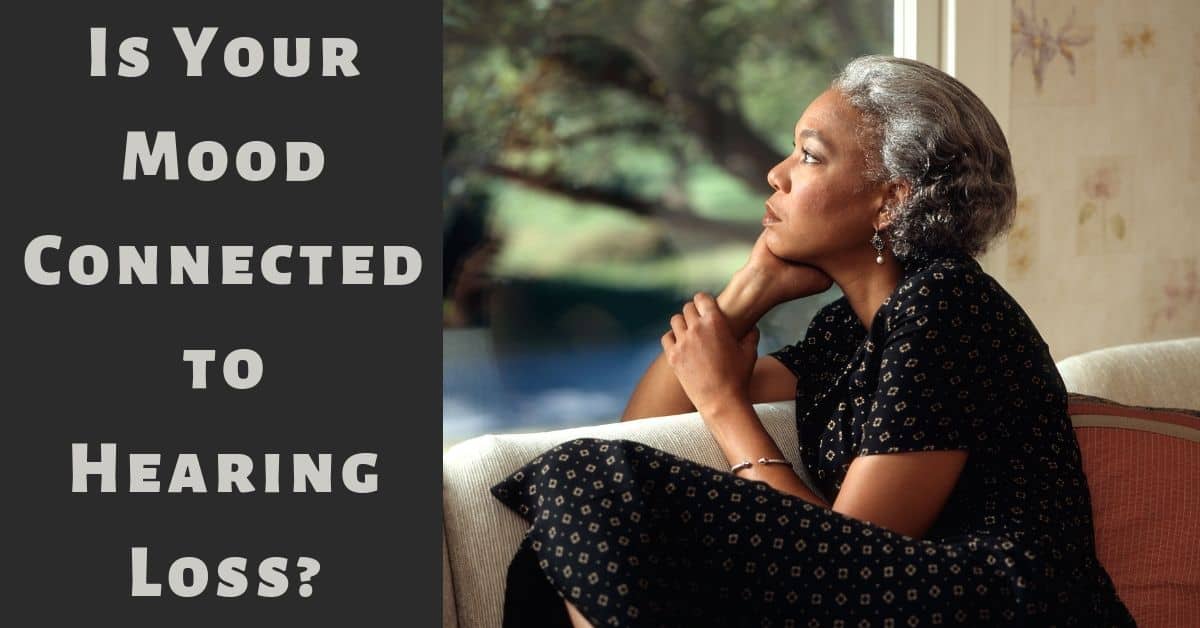
- Common Misconceptions That Delay Hearing Loss Diagnosis - June 6, 2025
- Signs Your Earwax Buildup Needs Professional Attention - May 29, 2025
- Preparing for a Hearing Test and What You Should Bring - May 16, 2025
Have you ever found your self in a bad mood that you couldn’t shake? Sometimes friends and family can help you snap out of a gloomy mood or even your favorite song. Imagine however is you had trouble hearing and conversing with friends and family and your favorite song was gradually harder to hear. If you are one of the 48 million people suffering from hearing loss in the U.S., it can make conversations with your loved ones into a stressful situation, which can ultimately lead to fatigue and depression. Hearing loss is associated with depression among American adults, especially with those younger than age 70, according to new research.
Depression and Hearing Loss
It stands to reason that depression and hearing loss go hand-in-hand. People with hearing loss usually find communication difficult, and this can lead to stress, fatigue and social isolation. Social isolation leads to depression, especially in older adults. It wasn’t until recently that researchers were able to show that is was more of a problem than previously thought. While other studies previously have found links between and depression, many of them looked only at older adults or at specific regions or ethnicities, and results have been mixed, the researchers pointed out. In the new study, as hearing declined, the percentage of depressed adults increased — from about 5 percent in those who had no hearing problems to more than 11 percent in those who did.
What is Dopamine?
Dopamine is a neurotransmitter, one of those chemicals that is responsible for transmitting signals in between the nerve cells (neurons) of the brain. Very few neurons actually make dopamine. When dopamine neurons become activated, they release dopamine. Because dopamine helps the body function smoothly, decreased amounts of the chemical have been linked to conditions such as Parkinson’s disease and schizophrenia. While levels of dopamine decrease naturally between the ages of 20 and 80, those with Parkinson’s disease have damaged nerve cells in the part of the brain that produces dopamine.
Is Dopamine Important to Hearing?
Although we hear with our ears, we interpret the sounds they collect using our brains. The auditory nerve is responsible for transmitting the sounds from the cochlea to the brain’s auditory center. When this pathway is damaged, individuals develop sensorineural hearing loss. This type of hearing loss is the most common and is often caused by advanced age and noise exposure. Although hearing aids and cochlear implants can help improve this condition, there is no cure.
Researchers studied the effect that the dopamine transporter, a protein responsible for transporting dopamine to nerve synopses, has on the auditory nerve. Their results, published in the May 2006 issue of the Journal of Neuroscience, indicate dopamine is essential in maintaining the health of auditory nerve neurons and the way they respond to sound stimulation.
Hearing Health and Quality of Life
Good hearing keeps you healthy and happy, but how much is good social activity important to quality of life? Various studies have linked social connections to better health and longer life.
The results have shown that the values of social interaction are stronger and than previously believed. Based on the data from these studies, limited social ties in your community are a major risk factor to your health, at least as harmful to your health as smoking, lack of exercise or obesity. Studies have found that you have a 50% lower risk of dying if you have close friends, family or work relationships.
Poor socialization threatens your health as much as if you were an alcoholic or were smoking a pack a day and poor social connections are harder on your health than not exercising, or being obese.
Stay Healthy and Happy
You can enhance your body’s natural ability to produce appropriate levels of dopamine by getting at least 30 minutes of exercise each day, eliminating foods high in sugar, fat and cholesterol, and eating foods known to increase dopamine production such as bananas, fresh fruits, vegetables and whole grains.
Hearing Aid Specialists of the Central Coast
Another important way to stay healthy is to get your hearing checked to make sure you are hearing at your best. To find out more ways to stay healthy and hear healthy visit us at Hearing Aid Specialists of the Central Coast. We can help you to hear to your fullest potential for years to come.
